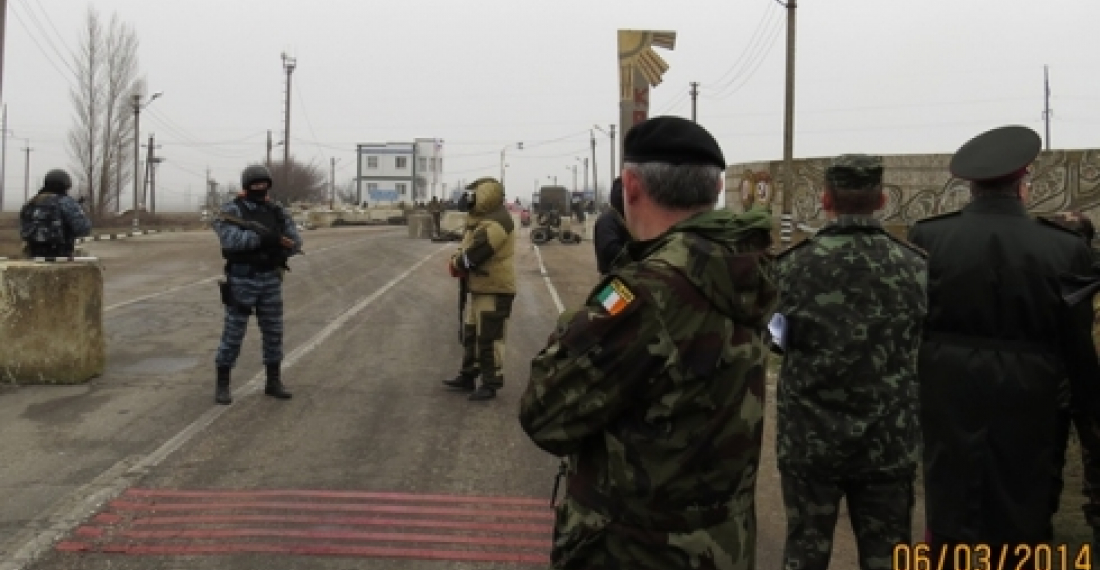A stand off continues between a mission from the Organisation for Security and Co-operation in Europe (OSCE) and Russian backed separatists on the Crimean Peninsula. On Saturday, members of the mission for the third day made an attempt to enter Ukraine but were prevented from doing so by armed men claiming allegiance to the Russian backed separatist forces that now control most of the peninsula. According to a spokesperson of the OSCE, quoted by Reuters, shots were fired towards the mission to stop their advance.
An international mission made up of 52 military and civilian personnel from 28 OSCE participating States currently form the contingent of military visitors, sent by OSCE participating States at the request of Ukraine, to dispel concerns about unusual military activities. The personnel made their first attempt to enter the Crimea region at the Armyansk crossing point on 6 March 2014 where two checkpoints have been set up, one by Ukrainian forces, and a second by unidentified military personnel, but were stopped at the second check point.
source: commonspace.eu with osce.org and Reuters News Agency
Photo: An Irish member of the OSCE Mission waiting at the Armyansk crossing point into the Crimean Peninsula on 6 March 2014. (Picture courtesy of the OSCE).







